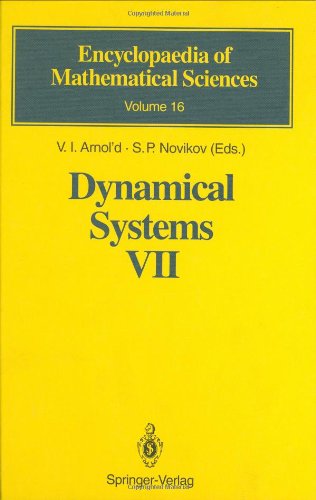Gregoire Nicolis9812700439, 9789812700438, 9789812775658
Table of contents :
Contents……Page 12
Preface……Page 8
1.1 Complexity, a new paradigm……Page 16
1.2 Signatures of complexity……Page 18
1.3 Onset of complexity……Page 20
1.4.1 Rayleigh-B enard convection……Page 23
1.4.2 Atmospheric and climatic variability……Page 26
1.4.3 Collective problem solving: food recruitment in ants……Page 30
1.4.4 Human systems……Page 34
1.5 Summing up……Page 38
2.1 Dynamical systems, phase space, stability……Page 40
2.1.2 Dissipative systems……Page 42
2.2.1 The microscopic level……Page 49
2.2.2 The macroscopic level……Page 51
2.2.3 Thermodynamic formulation……Page 53
2.3 Bifurcations, normal forms, emergence……Page 56
2.4 Universality, structural stability……Page 61
2.5 Deterministic chaos……Page 64
2.6 Aspects of coupling-induced complexity……Page 68
2.7 Modeling complexity beyond physical science……Page 74
3.1 Need for a probabilistic approach……Page 79
3.2 Probability distributions and their evolution laws……Page 80
3.3 The retrieval of universality……Page 87
3.4 The transition to complexity in probability space……Page 92
3.5.1 Closing the moment equations in the mesoscopic description……Page 97
3.5.2 Transitions between states……Page 99
3.5.3 Average values versus uctuations in deterministic chaos……Page 103
3.6 Simulating complex systems……Page 105
3.6.1 Monte Carlo simulation……Page 106
3.6.2 Microscopic simulations……Page 107
3.6.3 Cellular automata……Page 109
3.6.4 Agents, players and games……Page 110
3.7 Disorder-generated complexity……Page 111
4.1 Complexity and information……Page 116
4.2 The information entropy of a history……Page 119
4.3 Scaling rules and selection……Page 121
4.4 Time-dependent properties of information. Information entropy and thermodynamic entropy……Page 130
4.5 Dynamical and statistical properties of time histories. Large deviations, uctuation theorems……Page 132
4.6 Further information measures. Dimensions and Lyapunov exponents revisited……Page 135
4.7 Physical complexity, algorithmic complexity, and computation……Page 139
4.8 Summing up: towards a thermodynamics of complex systems……Page 143
5.2 Classical approaches and their limitations……Page 146
5.2.1 Exploratory data analysis……Page 147
5.2.2 Time series analysis and statistical forecasting……Page 150
5.2.3 Sampling in time and in space……Page 153
5.3.1 Dynamical reconstruction……Page 154
5.3.2 Symbolic dynamics from time series……Page 158
5.3.3 Nonlinear prediction……Page 163
5.4 The monitoring of complex fields……Page 166
5.4.1 Optimizing an observational network……Page 168
5.4.2 Data assimilation……Page 172
5.5 The predictability horizon and the limits of modeling……Page 174
5.5.1 The dynamics of growth of initial errors……Page 175
5.5.2 The dynamics of model errors……Page 179
5.5.3 Can prediction errors be controlled?……Page 185
5.6 Recurrence as a predictor……Page 186
5.6.1 Formulation …….Page 187
5.6.2 Recurrence time statistics and dynamical complexity……Page 191
5.7.1 Formulation……Page 195
5.7.2 Statistical theory of extremes……Page 197
5.7.3 Signatures of a deterministic dynamics in extreme events……Page 200
5.7.4 Statistical and dynamical aspects of the Hurst phenomenon……Page 206
6.1 The arrow of time……Page 210
6.1.1 The Maxwell-Boltzmann revolution, kinetic theory, Boltzmann’s equation……Page 211
6.1.2 First resolution of the paradoxes: Markov processes, master equation……Page 215
6.1.3 Generalized kinetic theories……Page 217
6.1.4 Microscopic chaos and nonequilibrium statistical mechanics……Page 219
6.2 Thriving on uctuations: the challenge of being small……Page 223
6.2.1 Fluctuation dynamics in nonequilibrium steady states revisited……Page 225
6.2.2 The peculiar energetics of irreversible paths joining equilibrium states……Page 226
6.2.3 Transport in a uctuating environment far from equilibrium……Page 229
6.3 Atmospheric dynamics……Page 232
6.3.1 Low order models……Page 233
6.3.2 More detailed models……Page 237
6.3.3 Data analysis……Page 238
6.3.4 Modeling and predicting with probabilities……Page 239
6.4 Climate dynamics……Page 241
6.4.1 Low order climate models……Page 242
6.4.2 Predictability of meteorological versus climatic fields……Page 245
6.4.3 Climatic change……Page 248
6.5 Networks……Page 250
6.5.1 Geometric and statistical properties of networks……Page 251
6.5.2 Dynamical origin of networks……Page 254
6.5.3 Dynamics on networks……Page 259
6.6 Perspectives on biological complexity……Page 262
6.6.1 Nonlinear dynamics and self-organization at the biochemical, cellular and organismic level……Page 264
6.6.2 Biological superstructures……Page 266
6.6.3 Biological networks……Page 268
6.6.4 Complexity and the genome organization……Page 275
6.6.5 Molecular evolution……Page 278
6.7 Equilibrium versus nonequilibrium in complexity and self-organization……Page 282
6.7.1 Nucleation……Page 283
6.7.2 Stabilization of nanoscale patterns……Page 287
6.7.3 Supramolecular chemistry……Page 289
6.8 Epistemological insights from complex systems……Page 291
6.8.1 Complexity, causality and chance……Page 292
6.8.2 Complexity and historicity……Page 294
6.8.3 Complexity and reductionism……Page 298
6.8.4 Facts, analogies and metaphors……Page 300
Color plates……Page 302
Suggestions for further reading……Page 306
Index……Page 336







Reviews
There are no reviews yet.